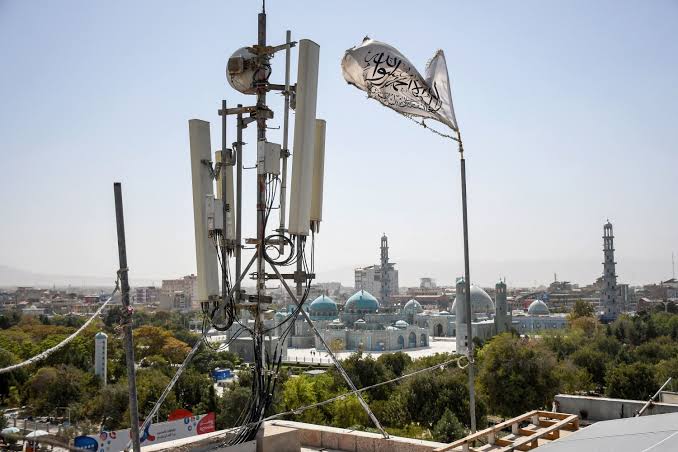By Eniola Amadu
The Taliban administration has imposed an internet ban across five provinces in northern Afghanistan, citing concerns about “immoral activities,” in its first move since seizing power in 2021.
In official statements released, authorities in Kunduz, Badakhshan, Baghlan, Takhar and Balkh said that all fiber optic internet connections had been cut off, affecting homes, offices, and businesses in the region.
The ban, however, does not apply to mobile phone data services, which remain available.
“This measure has been taken to prevent immoral activities,” the provincial governments said in a joint statement, without specifying when the restrictions might be lifted.
Officials added that an alternative would be provided to cover essential needs, though no details were offered.
The Taliban has repeatedly voiced concerns about pornography and online interactions between men and women, framing its latest action as part of a broader morality drive.
Since retaking control of Afghanistan, the group has introduced sweeping restrictions on women’s rights and public freedoms, including barring girls from attending high school, restricting female employment in many sectors, and enforcing strict dress codes.
Late last year, the Taliban codified a series of morality rules requiring women to cover their faces, mandating beards for men, and prohibiting car drivers from playing music.
Rights groups and foreign governments have condemned the measures, warning that they amount to the systematic erasure of freedoms in the country.
Former U.S. Ambassador to Afghanistan, Zalmay Khalilzad, described the internet ban as “absurd,” arguing that if the Taliban’s concern was pornography, they could have adopted filtering systems similar to those used in other Islamic countries.
“Many countries in the Islamic world do exactly that,” he said.
Analysts say the new restrictions will likely deepen Afghanistan’s digital isolation and disrupt economic activity, particularly in major northern cities where businesses rely on high-speed internet connections.
Civil society groups have also warned that cutting off fiber optic access could limit Afghans’ access to education, communication, and essential information at a time of growing humanitarian challenges.



